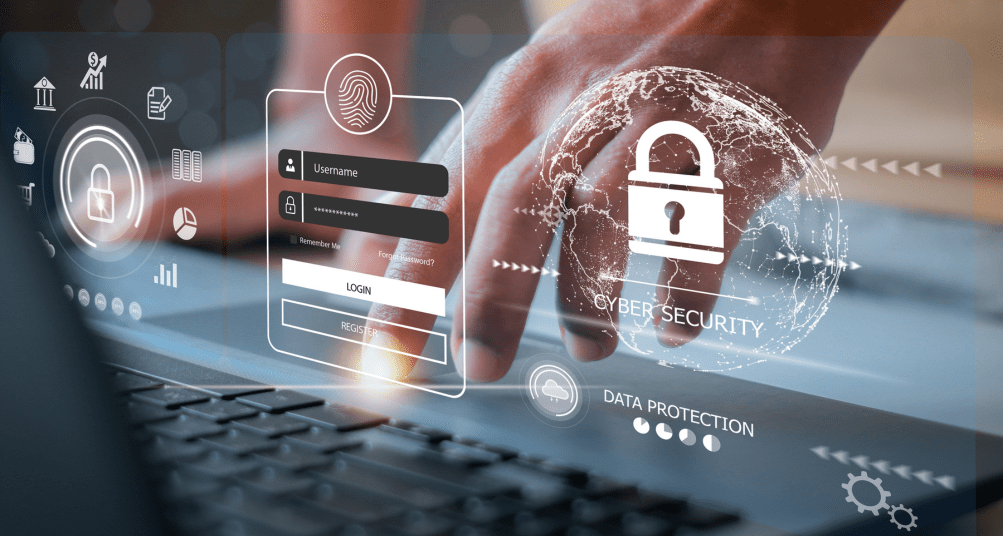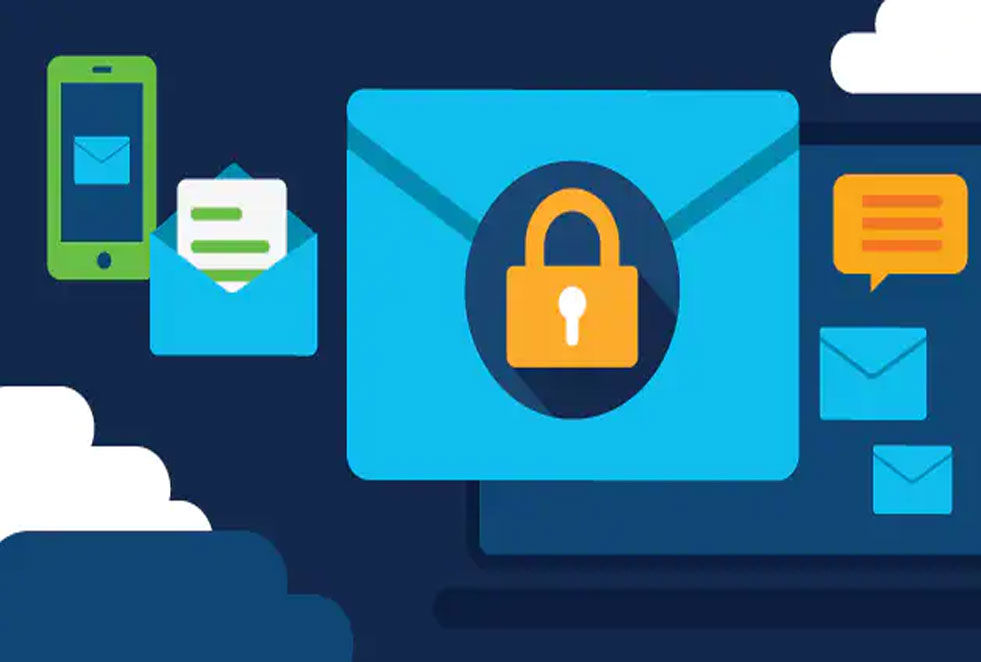The utilization of multiple ways to protect sensitive information in email communication and accounts against unwanted access, loss, or penetration is known as cybersecurity. Simply put, spam detection enables a person or business to guard against unauthorized access to any number of email addresses or accounts. This section outlines cybersecurity, discusses its significance, and lists its advantages for businesses. The top 8 emailing proper security practices for 2021 are also shared.
- Email archiving protects the information contained in email accounts and services, which are frequently used to distribute spam, viruses, and fake websites.
- This is typically accomplished by sending misleading texts to victims in an effort to get them to reveal sensitive data, open attachments, or click on links that infect the suspect’s device with spyware.
- Intruders who want to penetrate a company network and access sensitive data frequently use email as a means of entry.
- Even personal and business email accounts require cybersecurity, and companies should take a variety of steps to strengthen email servers.
- Parallel to this, a managed service secures communication protection on a network by employing strong passwords and access-control procedures. In this case, email messages are encrypted and digitally signed while they are delivered to or left at an email id of a client.
- To prevent unwelcome, suspect, and fraudulent electronic communications from reaching a user’s account, the supplier also uses firewall and software-based spam filtering technologies.
Importance of email marketing
- Cyber-criminals often go after email.
Workers earn their official email account as immediately after they begin working for any company. Every day, the personnel connect with one another and access business information using their individual email addresses. Email is the primary method of official correspondence between the company and its patrons.
As a result, when employees work remotely, as was the case during the COVID-19 outbreak, they frequently communicate via their work emails. Because of the vulnerability of such exchanges, professionals run the danger of being attacked by thieves. Phishing, baiting, social engineering, and many other sorts of attacks are frequently used by hackers to target security flaws.
- A small mistake can affect the whole business.
A tiny security flaw in an email can allow dangerous virus or adware to infiltrate the whole network system, causing havoc throughout the entire company. Once the institution’s technology is attacked by lethal viruses, the problem gets worse.
Such strategies even affect top veterans and skilled workers. Additionally, these cybercriminals might divulge private data by making it known to the public or, if they have a personal grudge, by offering it for to the highest bidder.
- It’s important for businesses to keep sensitive information safe.
Highly sensitive information that could be utilised against by the organisation or for criminal activity may be included in the group’s private data. Fraudsters may also monitor routine interaction and alter communications, which may lead to misunderstandings and force the speakers (workers) to reveal or withhold crucial data.
Such counterfeit could lead to identity theft, which might surely lead in a compromise of private data. Individuals and employers must be aware that attackers just need a tiny data leak to compromise the actual system.
- Below-average standard security measures
Although email service providers use industry-standard security procedures, several of these are easily bypassed by fraudsters. Standard email defences typically only work to thwart attacks that they are previously aware of. The email account occasionally asks users to evaluate that whether communications they have received are secure or not and take appropriate action. Modern artificial intelligence databases, real-time analysis, and machine learning are used by threat detection monitoring systems to improve safety.
Nonetheless, ordinary email security rules do not use such complex advanced techniques. Because of this, it’s increasingly crucial for clients to employ cutting-edge screening procedures to detect a variety of dangers early on and prevent them from entering the system.
- Cyber-criminals use sophisticated & advanced methods
Malicious hackers and thieves tend to utilise increasingly sophisticated techniques to get past different security firewalls, which might strengthen them as a result of technical advancements in online safety methods.
These techniques, which enable criminals to automating strikes, involve machine learning poisoning (MLP) and AI static analysis (AIF). In addition, hackers can take advantage of numerous cloud vulnerabilities to harm a company’s operations, revenue, reputation, and credibility in the market.
Since each of the above risks is serious enough yet to affect any firm, it is essential to implement sophisticated email security safeguards. Businesses can also choose security service vendors that offer stronger and more effective cybersecurity and general web security.
Benefits of Email Security
Due to the fact that practically all business communications now take place over email, it has grown into an essential aspect of our lives in the digital age. Despite the ease with which emails are used, it is crucial for businesses to maintain a vigilant guard against data breaches that could seriously harm their operations. Corporations now have a greater obligation to protect their corporate data and give email security topmost priority due to the increased threat of hackers, viruses, spam, phishing, identity theft, and ransomware assaults.
- Control device access
Email archiving can provide total access to stored specific way yet preventing total access to sensitive email attachments on weak managed devices. It makes sure that information availability for an email account is under supervision, protecting the information shared in email message exchanges.
- Identify suspicious user behavior
Email archiving can help in the evaluation of varying durations for the purpose of identifying existing spam and dangers. A hack of an identity or other questionable user behaviour may be found with the aid of this controls over outgoing email messages. The correct kind of email security platform should be able to identify and warn users who have began sending or receiving bulk emails in huge quantities. Such action can point to a compromised situation.
- Improve spam and phishing protection
In order to protect a business from cyber scams, one needs strong fraud prevention solutions. Crooks use spam email to trick staff into disclosing personal information like bank account numbers, account passwords, or credit card details by sending emails that look to come from trusted sender. Advanced email security features enable users to prevent or take other actions against questionable emails by helping them identify unwanted spam and dangerous phishing scams.
- Maintain communication confidentiality
Email messaging privacy is protected by email safety precautions like email encryption software or programmes. Confidentiality of emails is essential, especially when communicating sensitive or sensitive data. Cryptography is therefore a practical expense that can protect the company’s important data from being compromised.
- Protection against zero-day threats
Given that assaults are typically started by a malicious link or rogue document, email security is very important for defending a business against even a zero-day threat. In order to defend with malware, viruses, spam, and targeted assaults like phishing, spear-phishing, or whaling attacks, there must be numerous levels of defense in place. Email privacy, such as a Secure Email Interface, which offers generally pro and anti-spam defense, aids in preventing a zero-day assault.
- Real-time threat protection
In order to successfully thwart sophisticated attacks like extortion, access control uses a special combination of detection technologies, such as machine learning, sandboxing, and prescriptive modeling.
- Stop ransomware attacks and other threats
Ransomware attacks entail breaking into a company’s computer systems or sensitive data, then limiting or protecting access to it. Hackers demand a bribe, or “extorting,” from the organizations before granting access to their data. The most efficient technique to thwart ransomware attacks is to block malicious URLs and weaponized attachments considering extortion assaults are frequently started using email. Because of this, having email security in place makes it easier to recognize risks like obnoxious spam, sophisticated malware, phishing, and Business Email Compromise (BEC) assaults.
Types of email security
A lot of classified info is contained in emails as well as the account they are sent from. Organisations with significant data breaches may face disastrous outcomes if a hacker gains access to them. Malicious user also use email as a preferred attack vector, using it to infiltrate businesses with hoaxes and swindles.
The above are some of the most important types of security related to email accounts and conversation, from guarding the data they contain to defending them against attack:
- SPAM FILTERS
Corporations represent a greater quantity of emails that are commercial materials. These sales emails have a tendency to jam inboxes to the point where vital, necessary, and even official emails get lost. These advertisement pitches are also used by thieves to spread fake attacks. Unaware people frequently open unsolicited fraudulent emails and click on the hazardous applications and content that are included. This might result in a variety of problems, from corporation trust funds being compromised to computers being ransomed.
Modern spammers can help by directing mailing lists to a special inbox created for them, helping to distinguish them from phishing ones. The ability to schedule spam elimination without always having to open emails is a significant email security feature. This removes the possibility of harmful interactions.
- ANTI-VIRUS
Detection methods can gradually distinguish phishing emails from legitimate correspondence and eliminate them, but this will take time. There is a risk that a person could open a spam emails and engage with its contents as prolonged as it is saved on a business device and waiting to be deleted. When a user clicks on a link, potentially harmful adware could be downloaded and disseminated throughout the corporate network.
Strong anti-virus defence can be beneficial. This kind of programme checks entering and outgoing email for malicious material and prevents it from leaving or entering. As it can eliminate the chance of any pathogens hitting enterprise networks unnoticed by spam filters, this gives an additional protective barrier.
- ENCRYPTION
When email data is in circulation, it is often at its most vulnerable. Fraudsters can quickly access sensitive information if enterprise messages are delivered in an open manner and are intercepted. End-to-end encrypt, on the other hand, makes sure that only the sender and the intended recipient, who have been given a decryption key, may access the email.
Email body information and any related documentation are scrambled by the cryptography, rendering them incomprehensible to those without authorization. The organisation sending the encrypted business email won’t suffer a data breach if it accidentally goes to the wrong address or is intercepted by a bad actor. However, even if a company’s servers are stolen, no information will be revealed if all of the messages are encrypted.
The Galaxkey encrypted email system, which boasts strong multiple encryption, provides the highest level of safeguarding for communications, whether they are transmitted to coworkers or held on outbound servers and inboxes. Get in touch with our staff right away to start a free two-week trial of our system.
Protect data from email attacks
How do we shield our data from email threats as the danger scenario evolves? Here are two key strategies for defending yourselves with:
- Service in the Cloud
Email protection can be implemented through dedicated vps hosting or tools (SaaS). Many IT administrators wish to steer clear of the hassles associated with keeping up a back-end infrastructure for email hygiene and delivery (including servers and storage), as well as datacenter operations (including power and backup capacity).
- On-premises Appliance
Email tunnels using on-premises appliances that businesses may control and set up for themselves (the traditional approach). There is a need for an original cost and ongoing maintenance.
Advantages of Email security
- A cost-free tool is texting. After you’re connected to the internet, sending and receiving letters don’t require any more expenditures.
- Email is efficient. Sending a note is as simple as clicking a button once you’re done writing it. Email was being sent, transported, and viewed extremely instantly, particularly when an email system is connected into the system.
- Emailing is easy. Utilization is simple. Producing, emailing, and getting texts is easy once your account is set up. Additionally, email makes it simple and efficient to retrieve friends and material.
- Email makes reference simple. It is safe and simple to keep and filter through messages that have been sent and collected. Compared to old new notes, it is much simpler to go through old emails.
- Rapid access to data and files is made possible by email. You can choose to email myself files and save messages so that you have a record of your internet activity and activities in should you needed them later.
Disadvantage Of Using Email security
- Email may result in cognitive saturation. If there are many letters arriving and the network has not installed an email alarm sound on the office PCs, some items can be ignored or left unchecked.
- Email can really be disregarded for very long. Email has the drawback of requiring upkeep. If you choose to overlook it, your account will fill up with ever more mails until it becomes unmanageable.
- Email miscommunications are possible. Email consumers could misinterpret the receiver and sender incorrectly since email does not include nonverbal cues. This is especially true when senders post signals without reading them first.
- Email calls for largely determines. Despite the fact that these people ignore communications, some of those who call for comments ought to be answered as soon as they are received and read. If not, vital and significant letters can go unanswered.
- Emails should really be succinct and to the point. If you tend to send messages that are incredibly long, you may find this to be particularly challenging.






